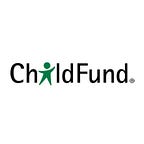The ‘Mama Effect’ on the World
Have you heard the saying “When Mama ain’t happy, nobody’s happy”?
Have you heard the saying “When Mama ain’t happy, nobody’s happy”? The words are glib, but the sentiment behind them is right on target. A mother’s health and well-being have a huge impact on the future of her children and her community, both positively and negatively.
Consider a few statistics:
- Exclusive breastfeeding for the first six months of an infant’s life, with continued breastfeeding up to the age of 2, would save about 800,000 children’s lives each year, according to the World Health Organization.
- The children of more educated women also have a greater chance of surviving infancy and childhood. A 2010 study in The Lancet shows that for every additional year of school that girls receive on average after reaching childbearing age, there’s a corresponding 9.5 percent decrease in child mortality rates.
- If women had the same access to seeds and farming tools as men do, agricultural output in 34 developing countries would rise by an average of 4 percent, which could mean up to 150 million fewer hungry people, according to U.N. Women.
This month, as we approach Mother’s Day, ChildFund is considering the “Mama Effect” — how mothers’ lives influence their children’s lives, both now and in the future. We are working in 30 countries worldwide to provide children and mothers with the tools they need to live healthy, independent and empowered lives. Find out how you can give a mother a helping hand. Your gesture can make a difference to a whole family, a community and even the world.
